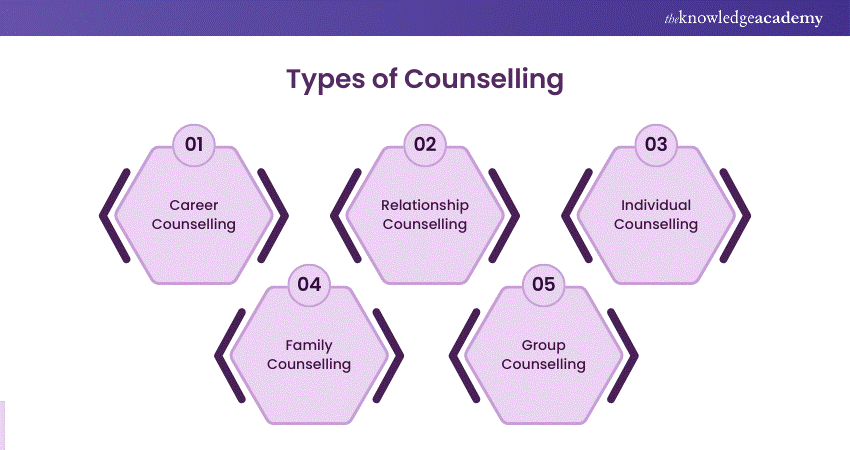relationship therapy: Methods It Can Strengthen Your Partnership
Wiki Article
Exploring the Benefits of Virtual Therapy in Modern Mental Wellness Treatment
The rise of virtual therapy notes a substantial change in mental healthcare. It provides enhanced availability, permitting individuals from diverse histories to seek aid without geographical restraints. Adaptability in scheduling accommodates differing lifestyles, while the convenience of home can foster openness. However, the ramifications of these adjustments extend beyond simple benefit. The advancing landscape of therapy increases crucial questions concerning its long-lasting effects on person interaction and treatment results.Improved Ease of access for All
Standard therapy frequently offers obstacles such as geographical area and organizing disputes, virtual therapy substantially boosts accessibility for people seeking psychological health assistance. By removing the demand for physical traveling, virtual therapy permits clients from remote locations or those with mobility difficulties to get in touch with certified specialists. This setting of therapy can reach underserved populaces that may lack regional psychological health resources, thereby attending to differences in accessibility to care. In addition, virtual platforms can accommodate diverse needs, offering solutions in multiple languages and suiting various cultural histories. Customers can engage with a wider variety of professionals, giving them with alternatives that line up with their specific requirements and choices. This boosted accessibility fosters a much more comprehensive setting, permitting people to look for help without the stigma commonly related to in-person visits. Overall, virtual therapy represents a significant advancement in making mental wellness treatment much more available to all.Flexibility in Organizing Procedure

As virtual therapy remains to obtain traction, its integral versatility in organizing sessions proves to be a substantial advantage for many people. Unlike conventional in-person therapy, virtual therapy allows customers to select session times that ideal fit their individual and expert dedications. This versatility fits those with demanding work timetables, family commitments, or other dedications that can make going to physical consultations testing.
Furthermore, clients can conveniently reschedule or change their sessions as needed, reducing the anxiety connected with rigid visit systems. The accessibility of different time slots throughout the week, consisting of nights and weekend breaks, better enhances accessibility. This adaptability not only urges uniformity present but likewise cultivates a greater dedication to the therapeutic process. Eventually, the flexibility in organizing sessions represents a transformative shift in mental health care, encouraging individuals to prioritize their wellness without compromising other aspects of their lives.
Convenience of a Familiar Setting
The convenience of an acquainted setting significantly boosts the performance of virtual therapy for many clients. Engaging in therapy from the safety of their own homes permits people to feel even more at convenience, lowering anxiousness that might come with typical in-person sessions. This knowledge can promote open communication, allowing clients to reveal their ideas and sensations a lot more freely.Furthermore, the existence of individual items and the ability to regulate their environments can add to a complacency and leisure. Customers usually report that remaining in a comfy room enables them to focus extra on the restorative process rather than the setting itself.
In addition, the informal nature of virtual sessions can help dissolve obstacles that may exist in a standard office atmosphere, cultivating a much deeper connection with therapists. On the whole, the convenience of familiar surroundings plays a necessary function in enhancing the restorative experience and performance for many individuals looking for mental wellness assistance.
Wider Range of Healing Choices
A broader variety of restorative alternatives appears through virtual therapy, allowing clients to accessibility numerous modalities that might not be feasible in typical settings. This adaptability allows people to explore varied approaches such as cognitive-behavioral therapy, mindfulness methods, art therapy, and also specialized interventions like trauma-informed treatment or dialectical habits therapy.In addition, clients can select from a more comprehensive spectrum of specialists, including those who concentrate on particular niche areas or particular populaces, enhancing the likelihood of finding a suitable suit. Virtual platforms commonly provide accessibility to team therapy sessions, support neighborhoods, and workshops that might be geographically not available otherwise.
This selection empowers customers to engage in their recovery process according to their unique choices and needs, potentially increasing inspiration and commitment to treatment. As an outcome, the landscape of mental wellness treatment comes to be extra comprehensive and versatile, dealing with a larger array of specific experiences and challenges.
Minimized Stigma Bordering Therapy
Accessing therapy via virtual platforms contributes to a substantial decrease in the stigma generally connected with mental health care. By providing a very discreet and private environment, virtual therapy permits individuals to seek help without the anxiety of being evaluated or identified. This anonymity attract those that might or else be reluctant to go after in-person therapy due to societal assumptions surrounding psychological health and wellness.As the occurrence of virtual therapy boosts, it normalizes the discussion around mental health, making it a more acceptable part of daily life. People typically feel much more comfortable discussing their experiences on the internet, advertising visibility and lowering sensations of seclusion. The ease of access of these solutions likewise urges a broader market to involve with mental health and wellness sources, cultivating a culture of assistance instead than shame. Ultimately, the increase of virtual therapy plays a vital duty in improving attitudes towards seeking assistance, adding to an extra accepting society relating to mental health challenges.
Cost-Effectiveness and Cost

Lowered Session Expenses
Many people looking for psychological health and wellness assistance locate that virtual therapy substantially minimizes session costs compared to standard in-person options. The elimination of traveling expenses and time off job often adds to total savings. Additionally, many virtual therapists offer competitive prices as a result of reduced above prices related to keeping a physical workplace. This shift in expenditure enables customers to accessibility top quality mental health and wellness solutions without the economic pressure that might feature standard therapy. For several, this price allows more frequent sessions, which can enhance treatment results. Consequently, virtual therapy not just equalizes accessibility to psychological healthcare yet likewise offers a sustainable financial model that aligns with clients' spending plans, making psychological wellness assistance a lot more possible for a bigger target market.Broadened Access Choices
While conventional therapy commonly provides logistical barriers, virtual therapy considerably increases gain access to alternatives for individuals looking for psychological health and wellness treatment. By removing the requirement for travel and permitting adaptable organizing, virtual therapy suits varied lifestyles and dedications. This availability is particularly advantageous for those in remote areas or with wheelchair obstacles. Additionally, the cost-effectiveness of virtual therapy lowers monetary pressure, low cost therapy making mental health services extra reachable. Many platforms offer tiered pricing or gliding range fees, advertising price. Insurance provider progressively recognize virtual therapy, more enhancing its monetary ease of access. On the whole, virtual therapy not just broadens the extent of who can obtain care however additionally addresses financial barriers, making mental health assistance extra comprehensive and achievable for all.Improved Continuity of Treatment
Enhanced connection of treatment becomes a substantial advantage of virtual therapy in contemporary mental healthcare. This technique allows clients to maintain constant communication with their therapists, no matter geographical barriers or organizing problems. virtual therapy. The adaptability of virtual sessions cultivates routine check-ins, which are important for keeping an eye on progress and adjusting treatment plans as necessaryFurthermore, digital health records and telehealth systems help with smooth info sharing amongst care providers. This interconnectedness assures that all professionals included in a person's care are updated on treatment developments, causing even more coordinated and reliable interventions.
Individuals usually experience reduced stress and anxiety and boosted interaction because of the ease of accessing therapy from familiar settings. Such availability improves adherence to treatment routines, inevitably boosting results - low cost therapy. To summarize, virtual therapy not only bridges voids in mental health and wellness services however also fortifies the continuity of care, a vital component of effective therapeutic relationships
Frequently Asked Questions
How Does Virtual Therapy Make Sure Discretion and Privacy for Customers?
The current concern addresses the measures virtual therapy employs to secure customer privacy. Making use of encrypted platforms, safe and secure logins, and compliance with guidelines like HIPAA, virtual therapy guarantees that sensitive information continues to be personal and inaccessible to unapproved individuals.Can I Switch Over Therapists Quickly in Virtual Therapy?
Changing specialists in virtual therapy is generally simple. Customers can connect their desire for a modification through the platform, enabling flexibility in finding a much better suit without the logistical obstacles of in-person appointments.What Modern technology Do I Required for Virtual Therapy Procedure?
To join virtual therapy sessions, a specific generally needs a reliable web link, a computer or mobile phone with a cam and microphone, and access to a safe video conferencing system specified by their therapist.
Are Virtual Therapy Sessions as Effective as In-Person Sessions?
Recent studies suggest that virtual therapy sessions can be just as effective as in-person sessions, relying on the person's choices and situations. Elements such as comfort and availability may improve the general restorative experience for some customers.What Should I Do if I Experience Technical Issues Throughout a Session?
If technological problems occur throughout a session, one should comfortably communicate the problem to the therapist, effort to reconnect, or button to a back-up method. Patience and adaptability are important in managing these interruptions.Report this wiki page